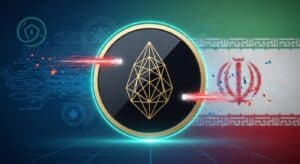
- Vitalik Buterin’s FOCIL proposal reignites Ethereum censorship debate.
- Community divided on inclusion and censorship resistance.
- Potential impacts on validators and regulatory compliance.
Vitalik Buterin’s FOCIL proposal has sparked a renewed debate over censorship resistance within Ethereum, engaging leaders, developers, and validators in discussions across various platforms, including Telegram and GitHub.

The proposal’s implications risk increasing regulatory scrutiny for U.S. validators, impacting Ethereum’s market stability and challenging the balance between network decentralization and legal adherence.
The recent introduction of Vitalik Buterin’s Fork-Choice Enforced Inclusion Lists (FOCIL) has ignited a passionate discussion within the Ethereum community. Leaders and developers are examining how FOCIL could safeguard transaction neutrality in Ethereum’s core infrastructure.
Key figures involved include Vitalik Buterin, Ameen Soleimani, and multiple Ethereum developers. FOCIL aims to prevent block-building centralization, ensuring inclusion by multiple transaction proposers. Developers discuss its potential impact on validators and regulatory exposure.
The proposal’s immediate impact includes a vigorous debate on forums like GitHub and Discord, creating a stir among protocol researchers. Some highlight FOCIL’s potential to combat censorship, while others warn of unwanted regulatory pressures on U.S. validators.
Financial markets and community governance remain affected, with Ethereum (ETH) at the center of these discussions. Concerns arise over potential sanctions, shaping governance and trading decisions across the protocol’s ecosystem, particularly for deFi and Layer-2 tokens.
Historical events, such as OFAC sanctions in 2022, underscore the relevance of this censorship debate. Comparisons draw with EIP-1559’s fee mechanisms, though FOCIL targets a more explicit solution to block-building challenges. The community examines protocol-level interventions.
“I think neutrality/’dumb pipe’ property of the L1 is important enough that we should have multiple lines of defense to protect it: … EVEN IF block building gets fully taken over by centralized professional builders AND like 2 of them control 99% of the block production, they still can’t censor transactions.” — Vitalik Buterin. Future projections include regulatory scrutiny, with potential repercussions for U.S.-based validators. Stakeholders weigh the trade-offs between neutrality and compliance, balancing Ethereum’s decentralization ethos and legal challenges. Ongoing discussions reflect a pivotal point in Ethereum’s evolving governance.






